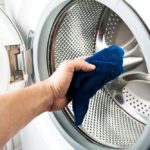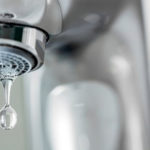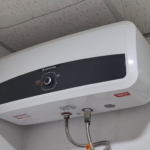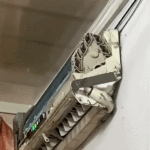Air conditioners are a necessity during hot and humid days. However, a common issue many people face is a leaking AC. This is not only annoying but can also damage the unit and reduce its cooling efficiency. So, what causes this problem, and how can it be fixed? Let’s find out.
1 Reasons for a Leaking AC
There are several reasons why your AC may be leaking water, including:
Dirty Air Filter
If your AC is used frequently without regular cleaning and maintenance, dust and dirt will accumulate, obstructing the cold air from escaping. This can overload the compressor and result in water leakage.
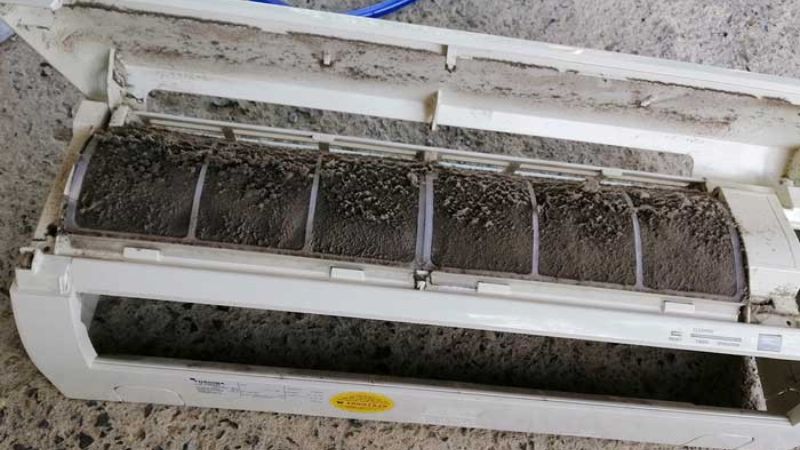 Dirty Air Filter
Dirty Air Filter
Low Refrigerant Levels
Over time, your AC may lose refrigerant, affecting its cooling ability. When there isn’t enough refrigerant, the evaporator coil can’t maintain a low temperature, leading to ice buildup. As the ice melts, water will leak from the AC.
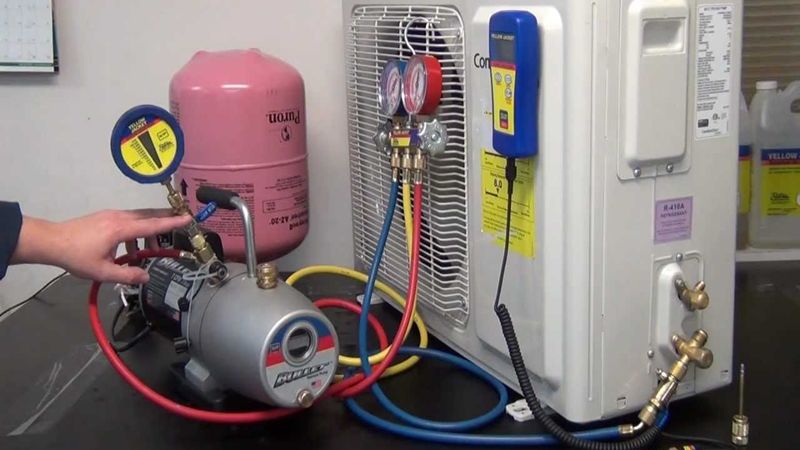 Low Refrigerant Levels
Low Refrigerant Levels
Broken Evaporator Coil Fan
The evaporator coil fan in your AC is responsible for blowing air over the coil to melt ice and cool the air. If this fan malfunctions or breaks, it won’t effectively blow air, leading to ice buildup and water leakage.
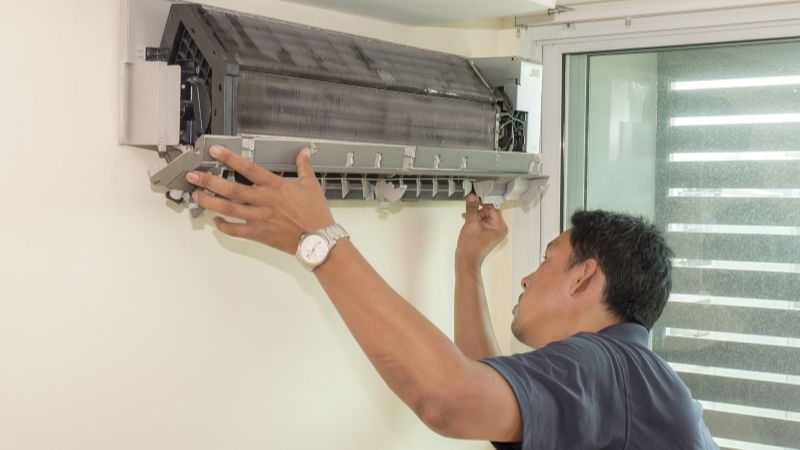 Broken Evaporator Coil Fan
Broken Evaporator Coil Fan
Drain Line Issues
One of the common reasons for AC leakage is an improperly installed drain line. This often occurs when the installer lacks the necessary skills or experience, resulting in a drain line that isn’t angled correctly, causing water to flow back into the AC unit.
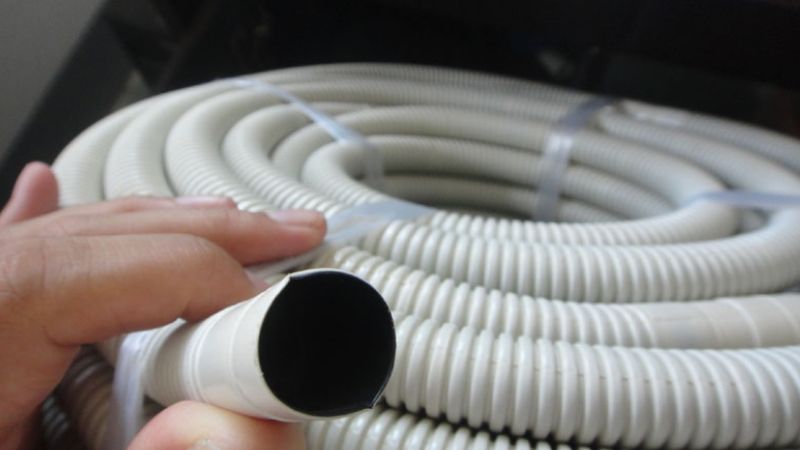 Drain Line Issues
Drain Line Issues
2 Fixing a Leaking AC
To address a leaking AC, consider the following solutions:
Regular Cleaning and Maintenance
AC usage leads to dust and water residue buildup on surfaces. Therefore, it’s essential to clean and maintain your AC regularly, every 3 to 6 months. This includes cleaning the air filter, evaporator coil, and other components to ensure optimal performance and airflow.
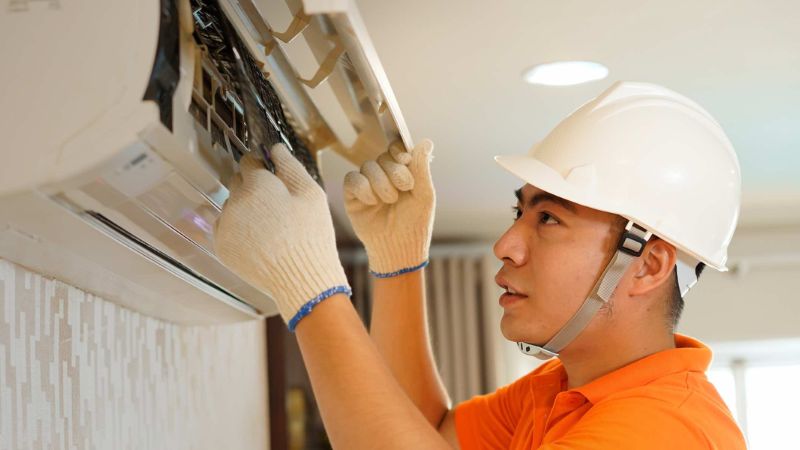 Regular Cleaning and Maintenance
Regular Cleaning and Maintenance
Clean the Drain Line
Use a pressure pump to blow through the drain line and wash away any debris or hardened material. This ensures that water can effectively escape through the drain.
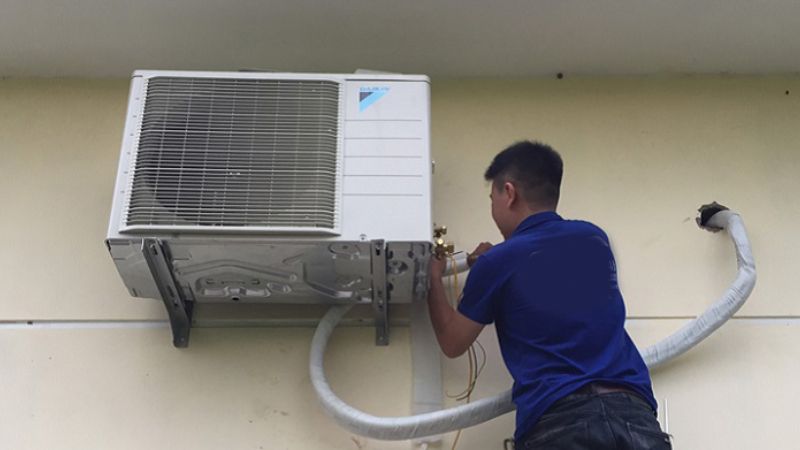 Clean the Drain Line
Clean the Drain Line
Check and Refill Refrigerant Levels
Inspect the refrigerant levels in your AC. If it’s low, refill it to ensure optimal performance. Note that refrigerant refilling should only be done by qualified technicians.
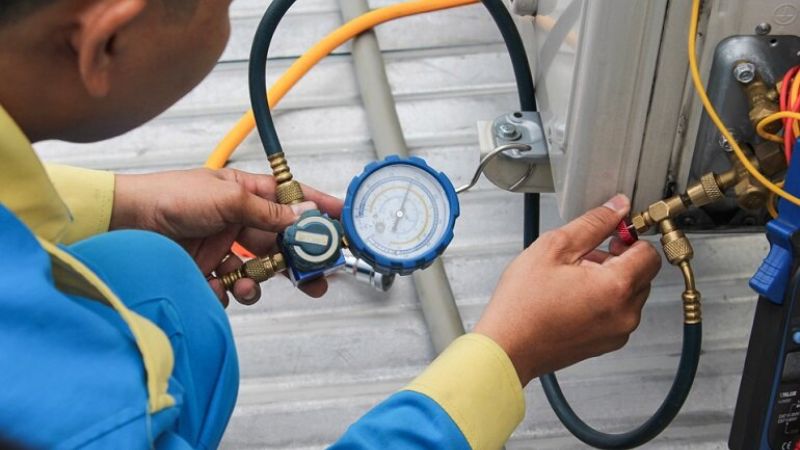 Check and Refill Refrigerant Levels
Check and Refill Refrigerant Levels
Inspect the Evaporator Coil Fan
Ensure the evaporator coil fan is functioning properly. It should operate normally to create airflow over the coil, melting ice and preventing water leakage.
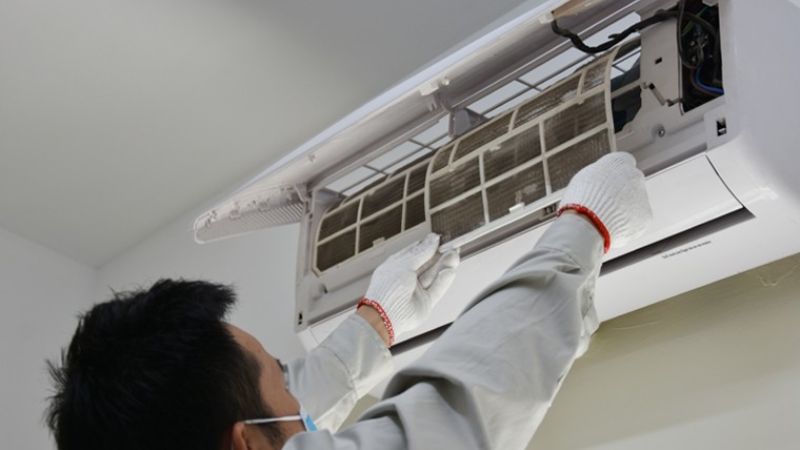 Inspect the Evaporator Coil Fan
Inspect the Evaporator Coil Fan
Check the Drain Pan
Inspect the drain pan to ensure it’s installed correctly. Make sure the pan is leveled and positioned accurately. Adjust or repair the drain pan if necessary to ensure proper water drainage.
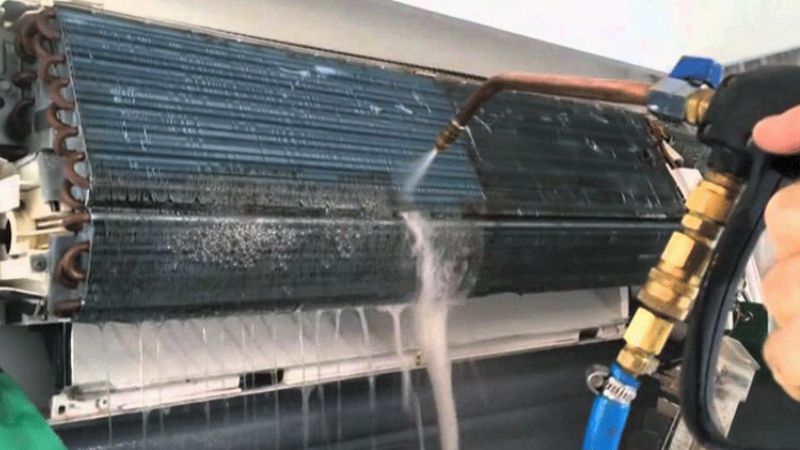 Check the Drain Pan
Check the Drain Pan
Understanding the causes of a leaking AC and implementing the appropriate solutions will help keep your unit functioning optimally and avoid unwanted issues. Don’t hesitate to refer to the manufacturer’s instructions or seek assistance from industry experts if needed.

























